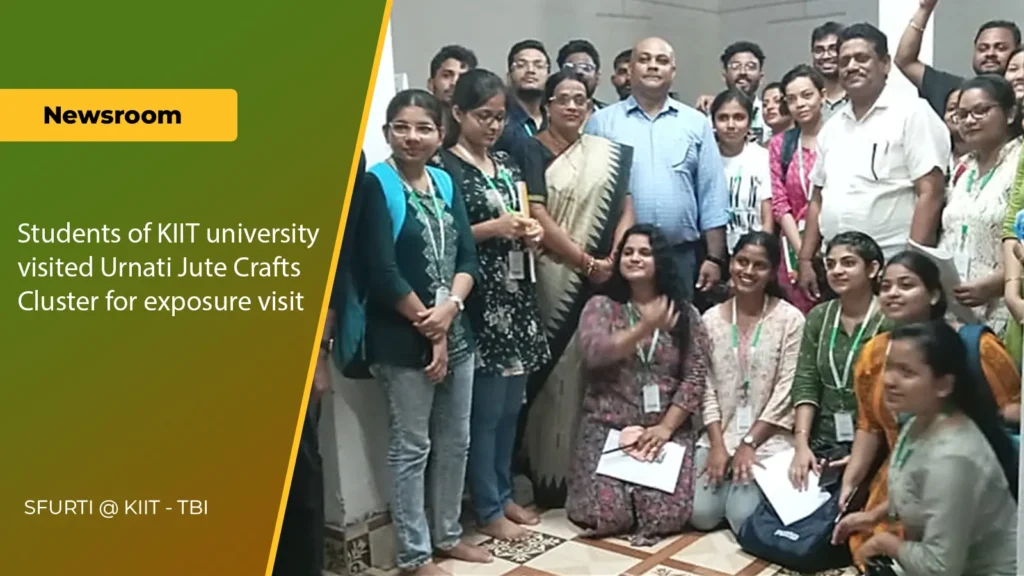A group of enthusiastic students accompanied by professors – Dr. Surendra Kumar Jena and Dr. Debasish Mohapatra from KIIT School of Rural Management visited the Urnati Jute Crafts Cluster situated at Tarangira village, Gop block, Puri on 12th July, 2024. The aim of the visit was to obtain insights into the operations and marketing channels of the jute craft industry.
The Urnati Jute Crafts Cluster, established in the year 2019 under the SFURTI scheme (Scheme of Fund for Regeneration of Traditional Industries) of MoMSME (Ministry of Micro, Small and Medium Enterprises), Government of India has been a pioneer in the field of jute crafts in the region of Puri impacting the lives of traditional craftsperson and facilitating sustainable livelihood in the region.
During the visit, the students had the opportunity to observe the intricate processes involved in the manufacturing of various jute craft products. Additionally, the students also interacted with artisans who demonstrated various techniques of jute processing, weaving, and crafting. This complete practical exposure to a real-world crafts industry was an eye opening for the students and they were in awe of the dedication and skills of the artisans.
Furthermore, the students were educated on the supply chain involved in the Urnati Jute Crafts Cluster by Ms. Sabita Nayak (Governing body member of SPV). They were also made aware about the management practices involved in the industry as well as the challenges faced by the artisans and the Jute sector.

The exposure trip also included a session on the role of the SFURTI scheme in supporting traditional industries. The students learned about the various initiatives undertaken by the Ministry of MSME to promote and revitalize traditional crafts, thereby providing sustainable employment opportunities to local communities.The visit concluded with the students expressing their admiration for the craftsmanship and their gratitude for the learning experience. Overall, the visit to the Urnati Jute Crafts Cluster was a significant step in bridging the gap between academic knowledge and practical industry experience, fostering a deeper understanding and appreciation of India’s rich cultural heritage and traditional industries.
This visit is another milestone in the cluster’s success story that shows how dedication and effort of a group of artisans can not only elevate their own social standards but also keep alive the traditional craft in the modern era.

